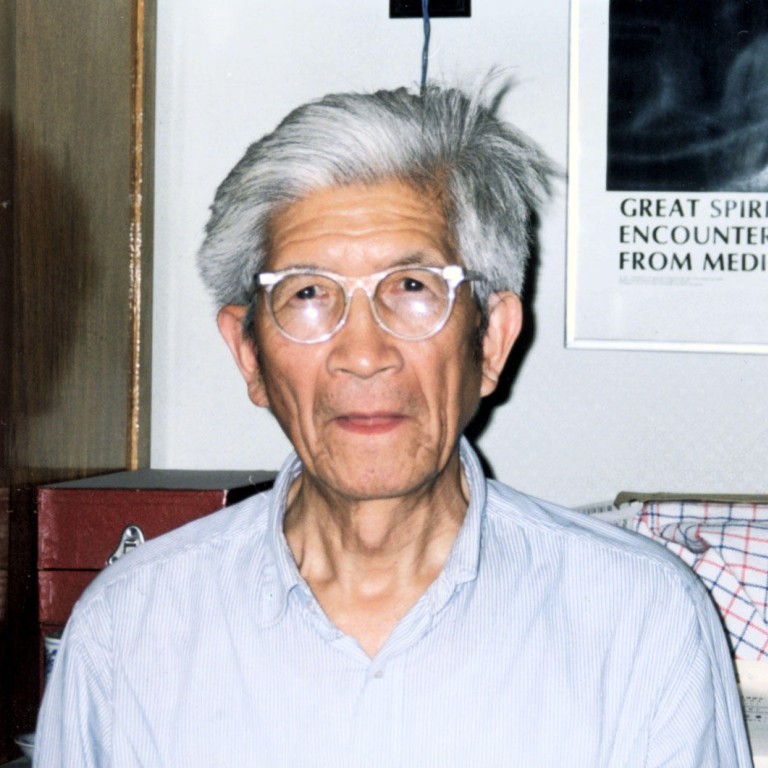
Dissident physicist Xu Liangying dies, aged 92
He dedicated much of his life to speaking up for democratic reform and political freedom
Xu Liangying, a dissident physicist who devoted much of his life to speaking up for democracy and political freedom, died in a Beijing hospital yesterday afternoon. He was 92.
He died of complications several weeks after suffering a cerebral haemorrhage, said his son, University of Hong Kong economics professor Xu Chenggang . Xu Liangying's wife, Wang Laidi , a historian, died just four weeks ago.
The couple had spent the past two decades working together on a book, almost completed, which aimed to introduce the concepts and origins of democracy to Chinese readers.
"I think his legacy is his consistent push for the understanding of and his defence of democracy and human rights - and this is not easy in China," Xu Chenggang said.
Xu Liangying won the 1995 Heinz Pagels Human Rights Prize and the 2008 Andrei Sakharov Prize.
The Sakharov prize committee said he was recognised for "a lifetime's advocacy of truth, democracy and human rights - despite surveillance and house arrest, harassment and threats, even banishment".
Born in Linhai , Zhejiang , in 1920, Xu Liangying graduated from Zhejiang University in physics in 1942. His admiration for Albert Einstein started when he was in secondary school. He was particularly impressed with a line in one of Einstein's essays: "The state is made for man, not man for the state. I regard the chief duty of the state to protect the individual and give him the opportunity to develop into a creative personality."
Xu Liangying, who joined the underground Communist Party at the age of 22, once said he joined the party because he was a true believer in Marxism, not just because he wanted democracy and freedoms. But he became disillusioned with Mao Zedong's regime as it grew repressive of academic freedom and political dissent.
Labelled a "bourgeois rightist" in 1957 for his opposition to the purging of scientists in the "anti-rightist movement", he was banished to the countryside, where he worked as a labourer for 20 years until 1978.
In February 1989, he drafted an open letter signed by 42 leading scientists that urged party leaders to push for democracy, protect civil rights and release political prisoners. The letter helped inspire the Tiananmen pro-democracy student protests. After the June 4 crackdown, the government put him under house arrest until the early 2000s.
After that, Xu Liangying published letters urging the authorities to free dissidents and respect human rights. All resulted in house arrest. But he continued to speak up for dissidents, including his protégé Wang Dan .
He remained disillusioned with the Communist Party in his last years. Asked in July whether he held any hope for political reform under the party's incoming leadership, he replied not as long as one-party rule remained.

